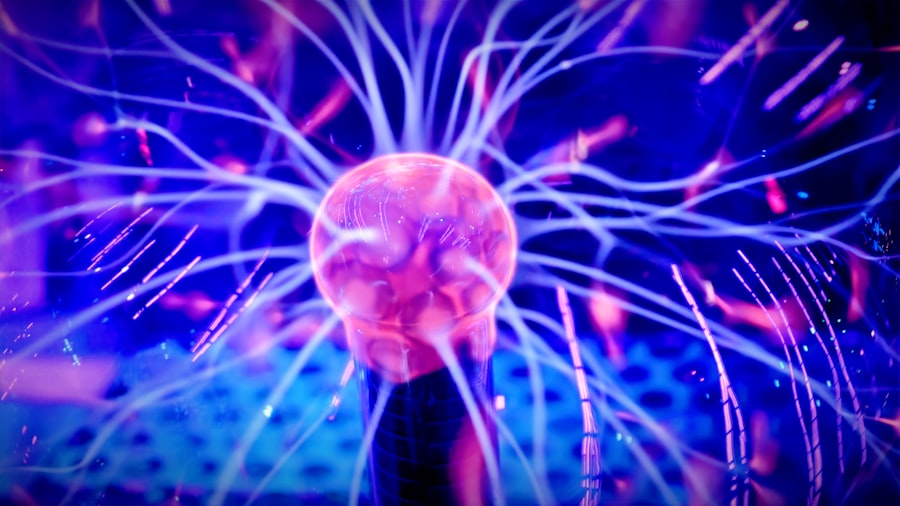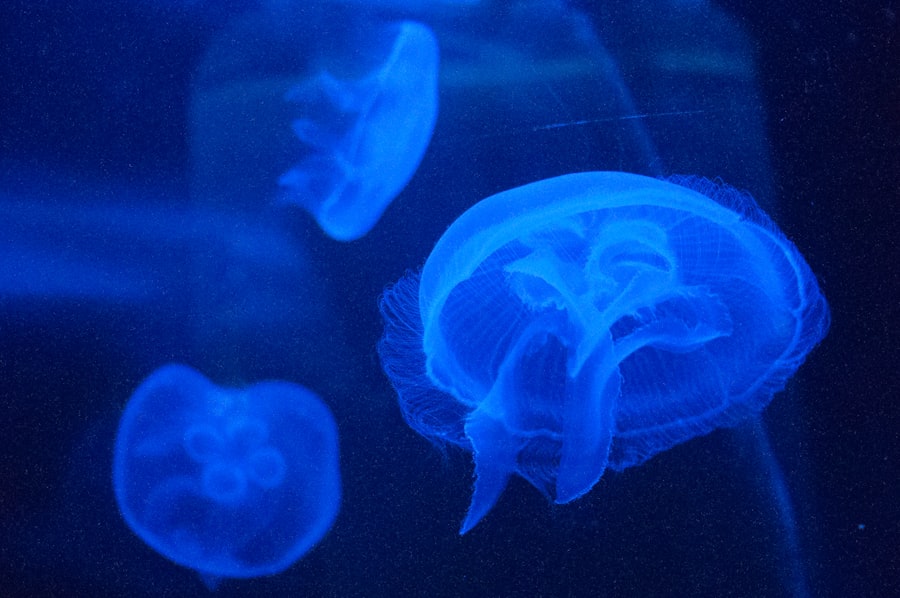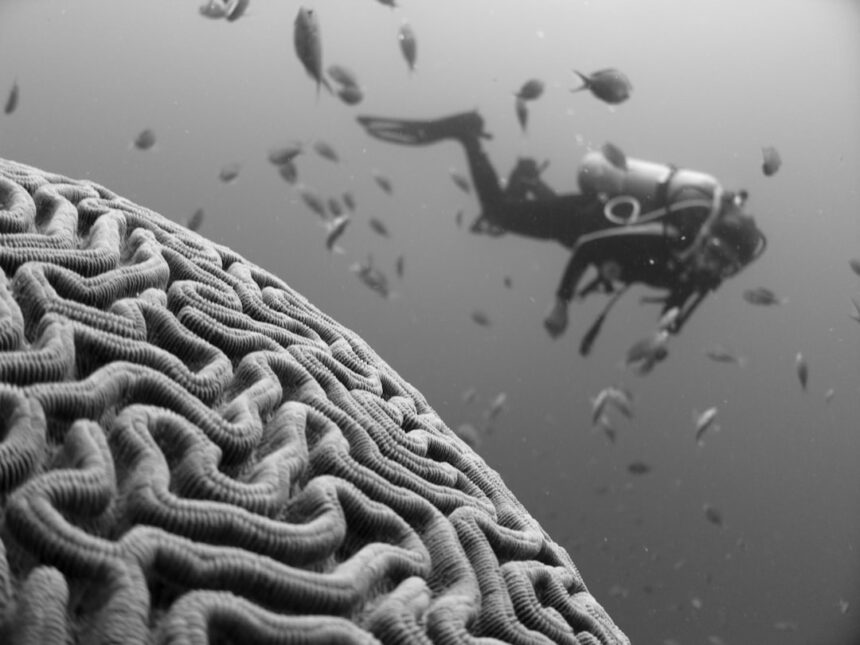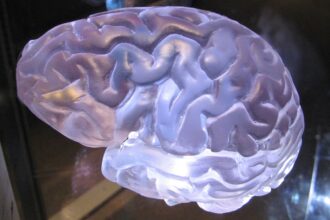Cognitive science is an interdisciplinary field that seeks to understand the nature of the mind and its processes. It encompasses various domains, including psychology, neuroscience, artificial intelligence, philosophy, linguistics, and anthropology. At the heart of cognitive science lies the enigmatic concept of consciousness, which refers to the state of being aware of and able to think about one’s own existence, thoughts, and surroundings.
You may find yourself pondering the essence of consciousness: What does it mean to be conscious? How does consciousness arise from neural processes? These questions have intrigued scholars and thinkers for centuries, and they continue to drive research in cognitive science today.
As you delve deeper into cognitive science, you will discover that consciousness is not merely a passive state of awareness but an active process that shapes your experiences and interactions with the world. It influences how you perceive reality, make decisions, and form memories. Understanding consciousness is crucial for unraveling the complexities of human behavior and cognition.
By exploring the various theories, neural correlates, and implications of consciousness, you can gain valuable insights into your own mind and the minds of others.
Key Takeaways
- Cognitive science explores the nature of consciousness and its relationship to the brain and behavior.
- Theories of consciousness in cognitive science include global workspace theory, integrated information theory, and higher-order theories.
- Neural correlates of consciousness are the specific brain processes and structures that are associated with conscious experiences.
- Attention and perception play crucial roles in shaping consciousness and determining what we are aware of at any given moment.
- Memory and consciousness are closely intertwined, with memory influencing our conscious experiences and vice versa.
Theories of Consciousness in Cognitive Science
In cognitive science, several theories attempt to explain the nature of consciousness and its underlying mechanisms. One prominent theory is the Global Workspace Theory (GWT), which posits that consciousness arises from the integration of information across different cognitive processes. According to this theory, when information becomes globally available in the brain’s “workspace,” it enters your conscious awareness.
This perspective emphasizes the role of attention in determining what you become aware of at any given moment. Another influential theory is Integrated Information Theory (IIT), which suggests that consciousness corresponds to the level of integrated information generated by a system. You might find this theory particularly intriguing because it proposes that consciousness is not limited to humans; it could potentially exist in other systems that exhibit a high degree of integration.
This raises profound questions about the nature of consciousness in non-human animals and even artificial intelligence. As you explore these theories, you will encounter a rich tapestry of ideas that challenge your understanding of what it means to be conscious.
Neural Correlates of Consciousness

The search for neural correlates of consciousness (NCC) aims to identify specific brain regions and processes associated with conscious experience. Researchers have employed various techniques, such as functional magnetic resonance imaging (fMRI) and electroencephalography (EEG), to investigate how different areas of the brain contribute to your conscious awareness. You may be fascinated to learn that studies have identified certain brain networks, such as the default mode network and the fronto-parietal network, as key players in conscious processing.
One significant finding in this area is the role of the thalamus in relaying sensory information to the cortex, where conscious perception occurs. The thalamus acts as a gatekeeper, filtering incoming stimuli and determining which information reaches your conscious awareness. This insight underscores the complexity of consciousness and highlights how it is intricately linked to neural activity.
As you consider these findings, you may begin to appreciate the profound relationship between brain function and conscious experience.
The Role of Attention and Perception in Consciousness
| Metrics | Data |
|---|---|
| Attention Span | 10-20 minutes |
| Perception Accuracy | 70-90% |
| Consciousness Level | Subjective |
Attention plays a pivotal role in shaping your conscious experience. It acts as a spotlight, directing your focus toward specific stimuli while filtering out irrelevant information. You might notice how your attention can shift rapidly from one object to another, influencing what you become aware of at any given moment.
This dynamic interplay between attention and perception is crucial for understanding how consciousness operates. Perception itself is a complex process that involves interpreting sensory information from the environment.
For instance, when you look at a painting, your interpretation may be influenced by your familiarity with art styles or your emotional state at that moment. This subjective nature of perception highlights how consciousness is not just about being aware but also about making sense of what you perceive.
The Relationship between Memory and Consciousness
Memory and consciousness are intricately linked, as your conscious experience often relies on your ability to recall past events and knowledge.
This relationship raises intriguing questions about how memories are formed, stored, and retrieved within your conscious mind.
You may find it fascinating that different types of memory—such as episodic memory (personal experiences) and semantic memory (general knowledge)—contribute uniquely to your conscious experience. For example, when you reminisce about a childhood vacation, you engage episodic memory, which allows you to relive specific moments vividly. In contrast, when you recall facts about a historical event, you tap into semantic memory.
Understanding these distinctions can deepen your appreciation for how memory shapes your consciousness and influences your identity.
Consciousness and Decision Making

Consciousness plays a crucial role in decision-making processes, influencing how you evaluate options and make choices. When faced with a decision, your conscious mind weighs various factors—such as potential outcomes, risks, and personal values—before arriving at a conclusion. This deliberative process highlights the importance of awareness in guiding your actions.
However, research has shown that not all decisions are made consciously. Many choices are influenced by unconscious processes that operate outside your awareness. For instance, you may find yourself drawn to certain products or ideas without fully understanding why.
This interplay between conscious deliberation and unconscious influences raises important questions about free will and agency in decision-making. As you explore this topic further, you may begin to reflect on how much control you truly have over your choices.
Altered States of Consciousness and Cognitive Science
Altered states of consciousness—such as those induced by meditation, sleep, or psychoactive substances—offer unique insights into the nature of consciousness itself. These states can profoundly affect your perception, cognition, and emotional experience. For example, during deep meditation, you may experience a sense of unity with your surroundings or heightened awareness of your thoughts.
Cognitive science investigates these altered states to understand their implications for consciousness. Researchers have found that certain practices can enhance cognitive flexibility and emotional regulation by altering neural pathways associated with consciousness. You might be intrigued by how these findings could inform therapeutic approaches for mental health conditions or enhance overall well-being.
By studying altered states of consciousness, cognitive scientists aim to unravel the complexities of human experience and expand our understanding of what it means to be conscious.
The Evolutionary Perspective on Consciousness
From an evolutionary standpoint, consciousness is thought to have developed as an adaptive trait that enhances survival and reproduction. As you consider this perspective, you may wonder how consciousness has shaped human evolution over time. The ability to reflect on past experiences and anticipate future scenarios likely provided early humans with a significant advantage in navigating their environments.
Moreover, social interactions play a crucial role in the evolution of consciousness. Your capacity for empathy and understanding others’ perspectives may have evolved as a means of fostering cooperation within social groups. This evolutionary lens invites you to contemplate how consciousness has not only shaped individual experiences but also influenced the development of complex societies throughout history.
The Ethical Implications of Cognitive Science and Consciousness
The study of consciousness raises important ethical questions that warrant careful consideration. As cognitive science advances our understanding of consciousness, it also challenges us to reflect on issues related to personhood, rights, and moral responsibility. For instance, if consciousness can exist in non-human animals or artificial intelligence systems, what ethical obligations do we have toward them?
You may find yourself grappling with questions about the treatment of sentient beings and the implications for scientific research involving animals or AI technologies. As cognitive scientists continue to explore the nature of consciousness, it becomes increasingly important to establish ethical frameworks that guide our interactions with other conscious entities. This ongoing dialogue invites you to consider how our understanding of consciousness shapes our moral landscape.
Practical Applications of Understanding Consciousness in Cognitive Science
Understanding consciousness has practical applications across various fields, including education, mental health, and artificial intelligence. In education, insights into how attention and perception influence learning can inform teaching strategies that enhance student engagement and retention. You might be interested in how techniques such as mindfulness can improve focus and cognitive performance in academic settings.
In mental health care, recognizing the relationship between consciousness and emotional well-being can lead to more effective therapeutic interventions. For example, mindfulness-based therapies have gained popularity for their ability to promote self-awareness and emotional regulation. By applying cognitive science principles to mental health practices, practitioners can help individuals navigate their conscious experiences more effectively.
In the realm of artificial intelligence, understanding consciousness can inform the development of more sophisticated AI systems capable of simulating human-like cognition. As you explore these applications further, you may begin to appreciate how insights from cognitive science can enhance various aspects of daily life.
Future Directions in Cognitive Science Research on Consciousness
As cognitive science continues to evolve, future research on consciousness promises exciting developments that could reshape our understanding of the mind. One area ripe for exploration is the intersection between neuroscience and artificial intelligence. By investigating how neural processes give rise to conscious experience, researchers may uncover new insights that inform AI development.
Additionally, interdisciplinary collaborations between cognitive scientists, philosophers, ethicists, and technologists will be essential for addressing complex questions surrounding consciousness. As you look ahead to future research directions, consider how advancements in technology—such as brain-computer interfaces—could provide new avenues for studying consciousness in real-time. In conclusion, cognitive science offers a rich framework for exploring the multifaceted nature of consciousness.
By examining theories, neural correlates, attention mechanisms, memory relationships, decision-making processes, altered states, evolutionary perspectives, ethical implications, practical applications, and future research directions, you can gain a deeper understanding of what it means to be conscious in an ever-evolving world.
In the realm of cognitive science, the study of consciousness remains a fascinating and complex field, exploring the intricate processes that underlie our awareness and perception. A related article that delves into this subject can be found on Unplugged Psych, where various aspects of consciousness are examined through the lens of cognitive psychology. For those interested in a deeper understanding of how consciousness is studied and conceptualized, you can explore more by visiting this article on Unplugged Psych. This resource provides valuable insights into the ongoing research and theories that continue to shape our understanding of the conscious mind.
WATCH THIS! The Shocking Truth About Perception Loops
FAQs
What is cognitive science of consciousness?
Cognitive science of consciousness is the interdisciplinary study of the mind and its processes, including perception, attention, memory, language, and decision-making, with a focus on understanding the nature of consciousness.
What are the main areas of study in cognitive science of consciousness?
The main areas of study in cognitive science of consciousness include neuroscience, psychology, philosophy, artificial intelligence, linguistics, and anthropology. These disciplines work together to understand the mechanisms and processes underlying consciousness.
What are some key questions in the cognitive science of consciousness?
Some key questions in the cognitive science of consciousness include: What is the nature of consciousness? How does the brain generate conscious experiences? What is the relationship between consciousness and the physical world? How do different states of consciousness, such as sleep and meditation, affect cognitive processes?
What are some research methods used in the cognitive science of consciousness?
Research methods in the cognitive science of consciousness include neuroimaging techniques (such as fMRI and EEG), behavioral experiments, computational modeling, philosophical analysis, and clinical studies of patients with brain injuries or disorders affecting consciousness.
What are some practical applications of the cognitive science of consciousness?
Practical applications of the cognitive science of consciousness include the development of treatments for disorders of consciousness, such as coma and vegetative states, as well as the design of technologies to enhance cognitive abilities and improve mental well-being. Additionally, understanding consciousness has implications for fields such as artificial intelligence and robotics.




